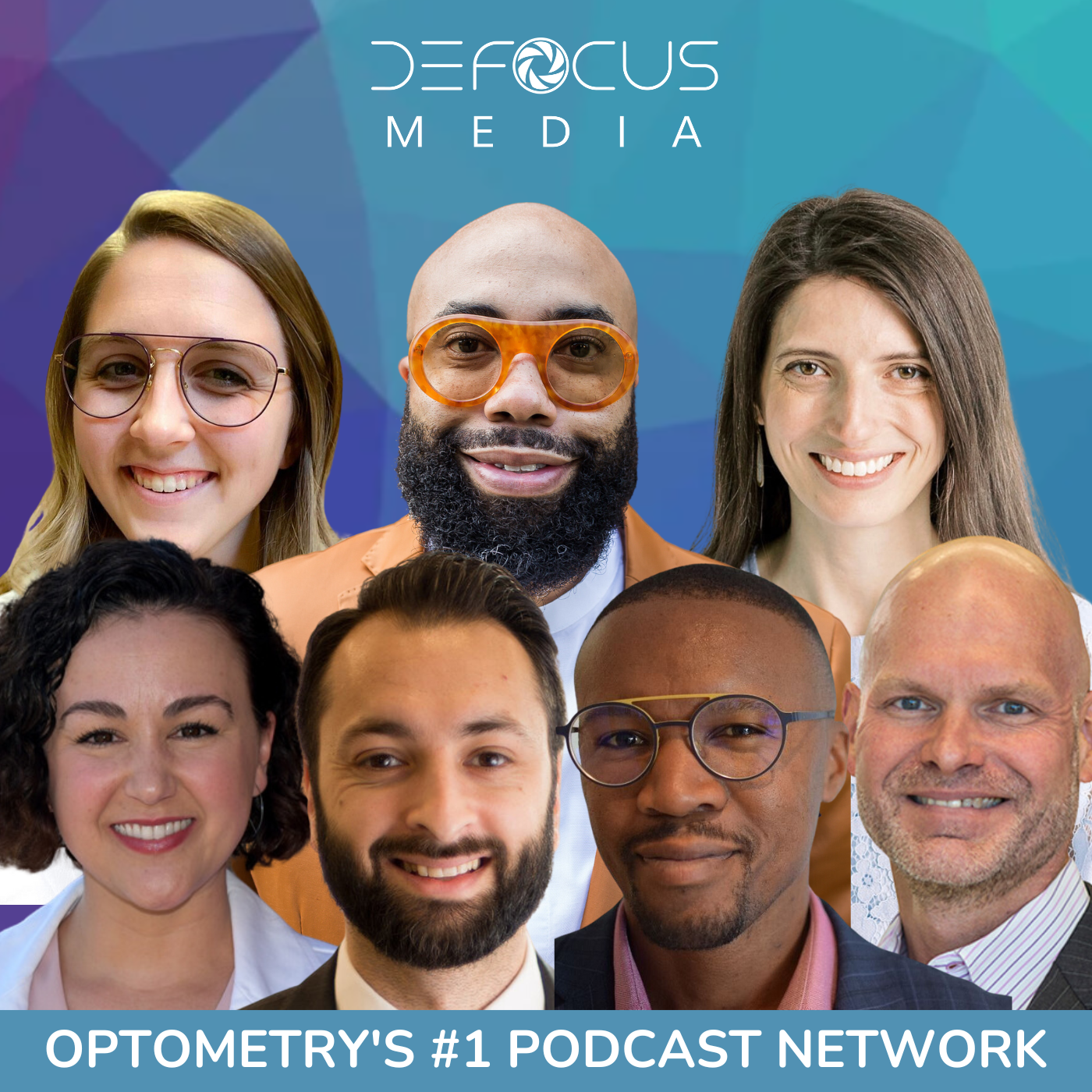EyeCare Shenanigans: Myopia Breakthroughs, Iris Color Dangers & Astronaut Vision
Description
Welcome to the February 2024 edition of EyeCare Shenanigans, where the future of optometry comes into sharp focus. This month, Dr. Jeffrey Fardink and Dr. Darryl Glover, dive deep into the latest breakthroughs and discussions reshaping eye care. We cover it all, from the groundbreaking study changing how we approach myopia management to the intriguing risks associated with eye color-changing procedures and the remarkable insights into how space travel affects vision. Stay ahead of the curve in the evolving world of optometry with insights that promise to enlighten, inform, and inspire.
Key Topics :Every Diopter Matters: The Importance of Myopia ManagementRevolutionizing Myopia Control: A New Study Unveils Groundbreaking FindingsWhen Not to Prescribe: Tailoring Vision Care to Individual NeedsInnovative Eye Color Changing Procedures: Risks and RewardsThe Future of Optometry: Myopia Control GlassesCosmic Eyes: Understanding the Effects of Space on Vision
Every Diopter Matters: The Importance of Myopia Management
Dr. Darryl Glover:
Nice. Very nice. As we discuss children’s issues, we’re excited to introduce some fascinating topics. Our first topic, which we’ve titled ‘Every Diopter Matters’, is particularly intriguing—and indeed, it does. Can you elaborate on this?”
Dr. Jeffrey Fardink:
Certainly, this topic underscores the crucial role of myopia management and control. It draws from a recent lecture by a professor based on a study in Puerto Rico. It highlights the significance of myopia control and the problems it addresses. Dr. Cassie Ludwig, a Professor of Ophthalmology at Stanford, discussed retinal detachment, myopic macular degeneration, and myopic traction maculopathy. These conditions become more likely as myopia worsens, emphasizing why ‘every diopter counts.’ It’s vital to monitor and treat highly myopic patients promptly. Interestingly, unlike standard macular degeneration, high myopia-related neovascularization responds well to anti-VEGF treatments. Hence, prevention is critical to reducing the onset of these complications.
Dr. Darryl Glover:
And that’s a reminder we constantly need. It’s imperative to act when we see signs of myopia in a child. Think about the long-term impact on the child and their family. If myopia control isn’t your specialty, refer them to someone who is. The goal is to make a difference, so let’s make that connection.
Dr. Jeffrey Fardink:
This reminds me of a long-term patient, 60 years old, with a myopia of minus 22 in both eyes. He’s approaching the need for cataract surgery, which presents a significant risk of retinal detachment. Educating patients about potential complications is crucial, especially in high-risk cases.
Dr. Darryl Glover:
Absolutely. Sharing real-life cases helps our listeners apply this knowledge in their practices. It’s essential to not only treat myopia but also to educate patients about potential ...
More Episodes
Published 05/02/24
Dr. Claudine Courey rejoins the podcast to explore the concept of CLEAN BEAUTY.The episode delves into aesthetic procedures and cosmetic usage in the eye area, emphasizing the growing concern over the potential risks associated with popular treatments like eyelash extensions. Given the trend...
Published 04/12/24
Published 04/12/24


